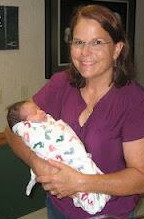Sonlighter Christina L sent me a link to the blog post Why boys don't read girls (sometimes). I'm so glad she did! Take a minute to give it a read.
Back?
Good.
A young man I knew in high school had a high pitched voice and effeminate mannerisms. "Naturally" he was teased constantly. After years of such abuse, he decided it was easier to "come out" as a homosexual. It boggles my mind when people say that Christians are hateful;* none of my Christian friends ever insulted people in the manner. It feels far more hateful to tear someone down by calling them "gay" than to disagree about the moral values of such a lifestyle.
Boys aren't alone in this. A friend of mine is very concerned about her little sister who is starting high school in a few weeks. They both tend to dress "tomboyish" and sport shorter hair. The sexual slurs they endure day after day in school are not fit to print and make me want to weep. So, yes: I have no trouble believing kids in school learn to avoid certain things to save themselves from the cruelty of their classmates.
I also find it completely plausible that adults mindlessly reinforce these harmful "boundaries" between the sexes. Dr. Sax in Why Gender Matters makes a strong case for social pressures negatively impacting children. But the message of his book is brilliant: Once we understand the differences between the genders, we can all better excel in every field. Boys aren't destined to be bad at reading and girls aren't required to give up on math.
As Shannon Hale points out in her post above, homeschoolers are able to shake free of the current school "norms" that paint the genders into narrow boxes of pink and blue. We can enjoy great literature, and we don't have to worry about the gender of the author or judge the book by its cover. And this gives us the freedom to define ourselves by more than our sex. We can focus on our strengths and be blissfully ignorant of the limitations the rest of the world places on what books and interests we "should" pursue.
...now, having said all that, there is something to the idea of "boy" books and "girl" books. Dr. Sax points to this in his book, but you'll have to read it because I'm out of time for today.
~Luke Holzmann
Filmmaker, Writer, Empty Nester
*I am well aware of a few high profile "Christian" groups that spew such hate. But to label a calm disagreement as "hate" on par with bullying/teasing simply does not make sense to me.







